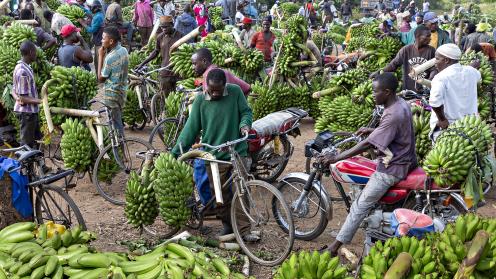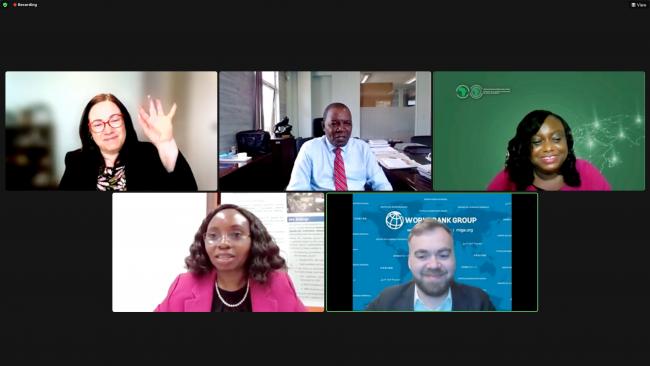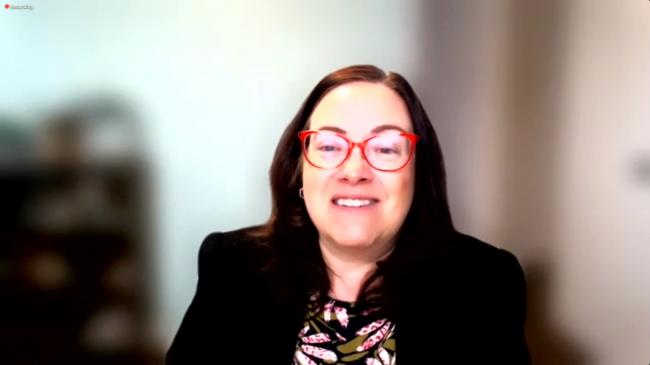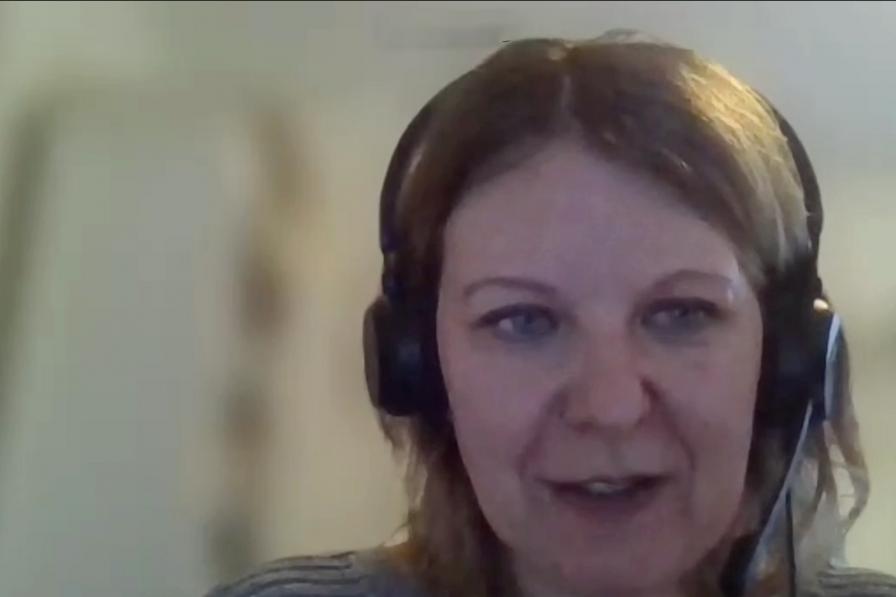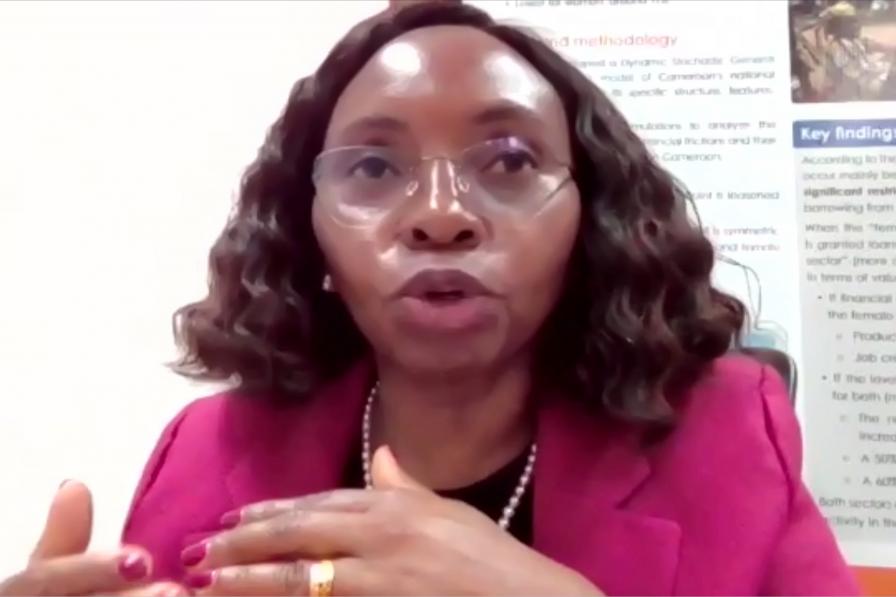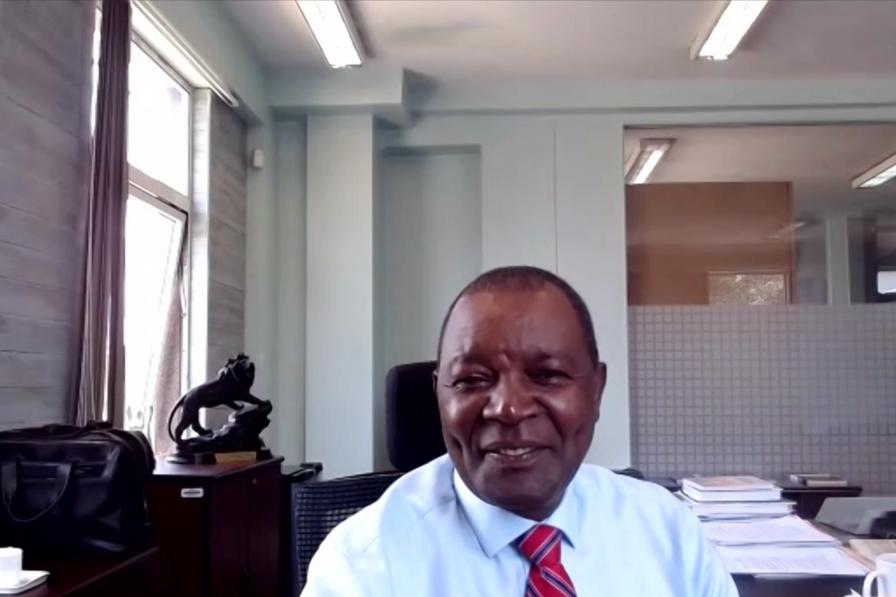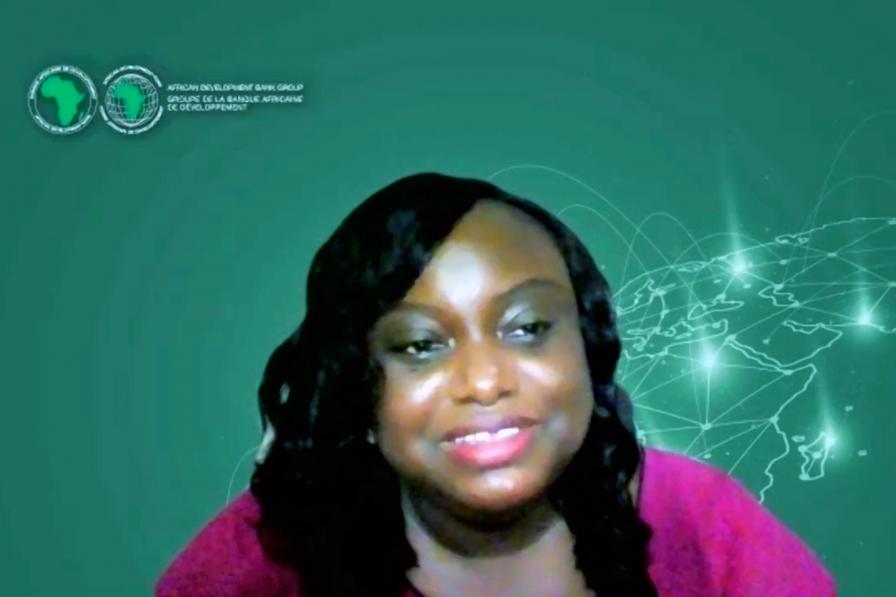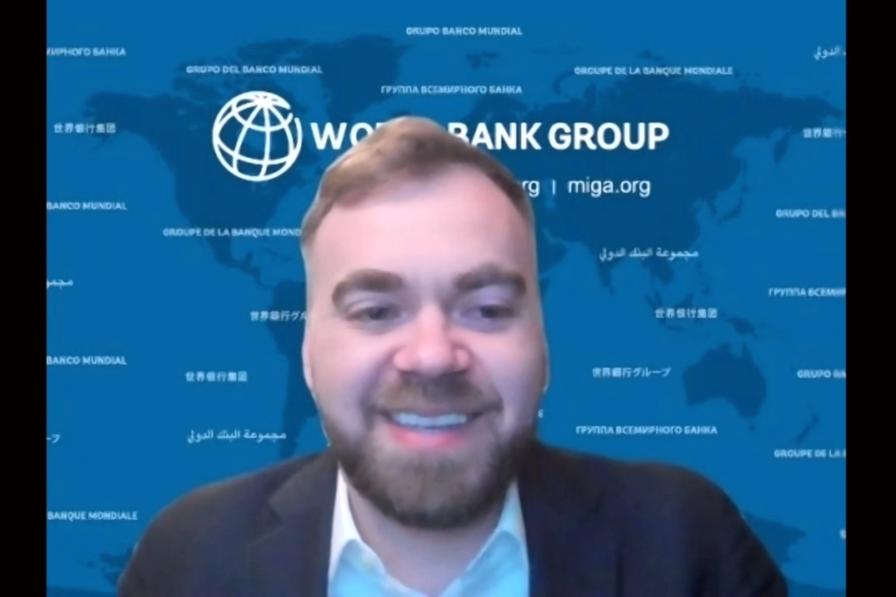In 1937, the originator of the Gross Domestic Product (GDP) index, economist Simon Kuznets, specifically warned against equating GDP growth with economic or social well-being. Yet for more than 70 years, it has been the most frequently cited and influential indicator of national wellbeing, progress, and economic success, despite its failure to account for health, happiness, (in)equality, and other aspects of welfare. To further address the issues GDP has created for pursuit of human and planetary welfare, and discuss how to move beyond GDP to achieve and sustain both, the International Institute for Sustainable Development (IISD) convened this panel discussion, which was sponsored by the International Development Research Centre (IDRC), Canada.
The event was introduced by Livia Bizikova, IISD, and moderated by Dominique Charron, IDRC, who noted that using GDP to measure progress and wellbeing is insufficient because it favors short-term policies over long-term sustainability. She highlighted that “Moving beyond GDP” events will be held for three regions, with this one focusing on Africa. Charron asked the panelists to address: why the world needs to move beyond GDP and how this can be achieved; how a focus on wealth can inform policymaking in Africa; and how to shift to this new focus.
Njuguna Ndung’u, Executive Director, African Economic Research Consortium (AERC), noted GDP was only ever intended to measure economic activity in markets and lamented GDP’s inability to reflect, for example, the informal economy or price externalities. However, he cautioned that information for other indicators, such as inequality and gender disparity, is limited and challenges remain in making them comparable across countries. He highlighted that distribution is important for making growth sustainable and called for moving from a growth strategy to a poverty reduction strategy. He lamented insufficient data on intangible assets and called for developing an analytical framework that is comparable across countries.
Jim Cust, World Bank, said new indicators should complement, rather than replace, GDP to enrich understanding of countries’ development paths. He pointed to the World Bank report, Changing Wealth of Nations 2021: Managing Assets for the Future, which attempts to assign values to wealth and cites huge natural resource wealth across Africa that is not measured by GDP. He said measuring wealth addresses the sustainability of underlying assets, noting GDP is only viable if one’s asset base is not shrinking. He added that GDP does not: measure externalities; address market failures such as climate change; or address forms of capital that do not produce income. He said maintaining comparability across countries is challenging; thus, the World Bank follows the system of national accounts to do this. He presented a graph showing long downward trends in per capita wealth in many countries from 1995 to 2018.
Lebohang Liepollo Pheko, Wellbeing Economy Alliance (WEAll) Ambassador, via video, highlighted that GDP is not the most appropriate measure from a woman’s point of view, and does not count many aspects of welfare such as social reproduction. She said growth in wealth simply as "accumulation" has not meant improved wellbeing, given jobless growth and the multiple unvalued, unvalorized services of others upon which those who participate in the market economy depend. She defined wealth as power and poverty as powerlessness, which GDP and statistics do not reflect. She criticized the notion that economics is ahistorical, given, inter alia, colonialism, sexism, and exploitation of migrant workers, and called for alternatives to the unequal and skewed power relations represented in GDP and at the World Trade Organization. She said wealth should be defined as a thriving people and planet.
Vanessa Ushie, African Development Bank (AfDB), emphasized measurement of wealth in various categories of capital. She called for Africa to leverage its natural capital for stronger growth by including it in accounting systems, as introduced by AfDB, and developing compensation systems for global commons goods, such as debt for-nature-swaps and payments for reducing emissions from deforestation and forest degradation (REDD+), in cases where preserving natural capital is difficult because of short-term needs. She said producing data on the informal economy is improving the accuracy of GDP although challenges exist with respect to collecting such data. She urged using broader measures and indicators, such as Gross Ecosystem Product (GEP) developed by the International Union for Conservation of Nature (IUCN) or Bhutan’s Gross National Happiness (GNH) Index, toward achieving a more sustainable planet.
Jane Kabubo-Mariara, Executive Director, Partnership for Economic Policy (PEP), said GDP cannot account for progress on most Sustainable Development Goals (SDGs). She noted it leads to unfair ranking of countries as it cannot measure, for example, natural resource endowments, political freedom, human rights, or ecosystem values. She stressed that measuring only monetary values encourages activities that do not contribute to community and societal wellbeing and called for true quality of life measures, urging improvement of monitoring tools to measure intergenerational change and non-income activities. She predicted gains would be achieved by engaging all stakeholders, including the ability to tackle latent development challenges not currently measured, and questioned the inclusion of defense spending in GDP. She called for the scientific community to identify wellbeing indicators ignored by GDP through, for example, shadow pricing, measurement of socio-economic wealth, and the GNH index. She recommended using the High-level Political Forum on Sustainable Development to build consensus on methodologies to expand national accounts, noting that PEP can train researchers in alternatives to GDP.
Responding to questions from the audience:
- Ushie said no magic bullet exists for solving the problem and called for measuring human progress in a systemic way. She noted the issue is not prosperity and money but our very survival.
- Ndung’u said work is being undertaken on ways to value and measure intangible assets such as property rights, and called attention to the issue of patents for vaccines. He cautioned that wealth and happiness are not synonymous.
- Cust said “wealth” captures only some of the aspects that GDP omits, calling for more indicators for measuring different values. He said policymakers must ultimately prioritize available measurements available. He said valuing social capital or national institutions, and how best to account for them, is a subject of international debate, saying all stakeholders must be included.
- Kabubo-Mariara said collaboration and partnerships are needed for developing different analytical tools, such as shadow pricing and valuation of intangibles, and then decision makers must test them. She noted the challenge is how best to convince decision makers.
In closing, Moderator Charron agreed that any helpful tool should be considered for achieving a more inclusive future that delivers benefits for the near term but also for future generations. She called for conversations at all levels to ensure the right decisions are made.
